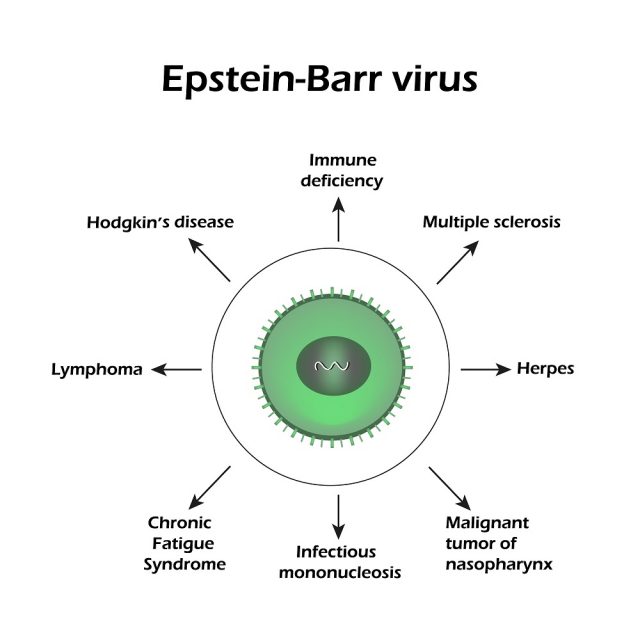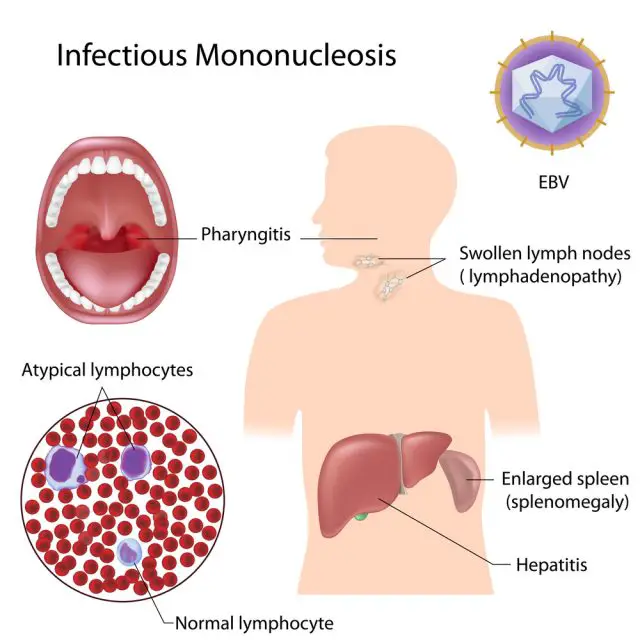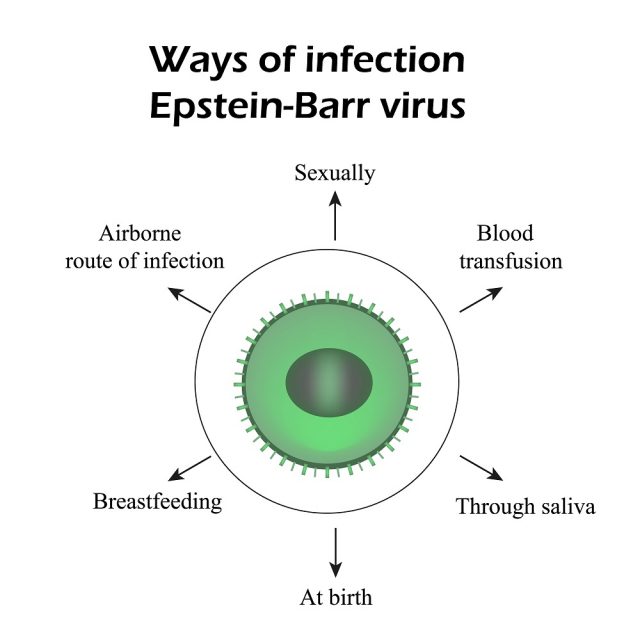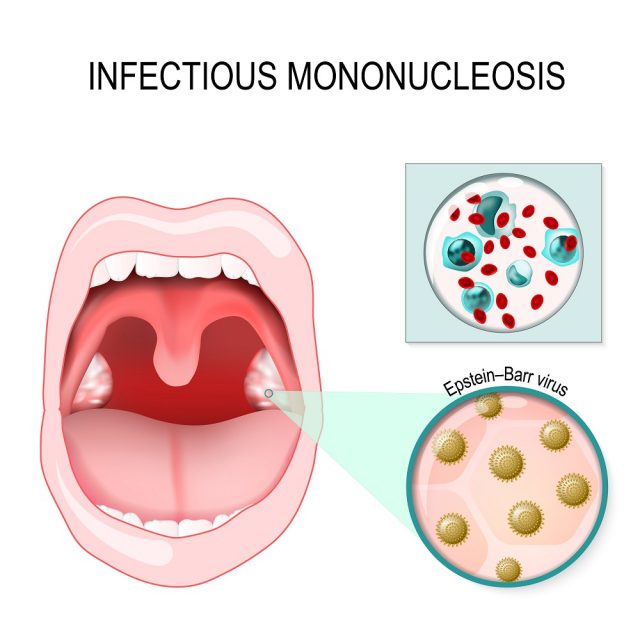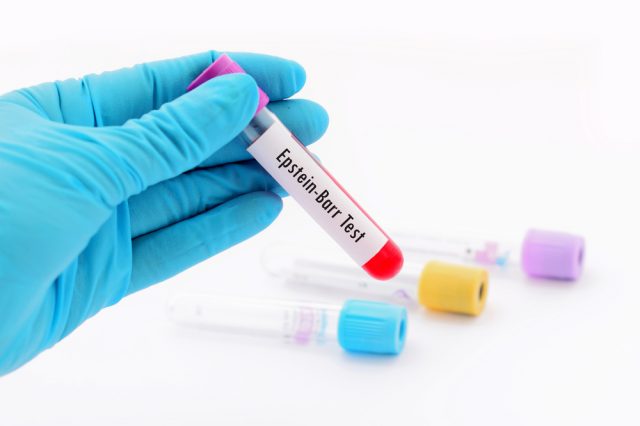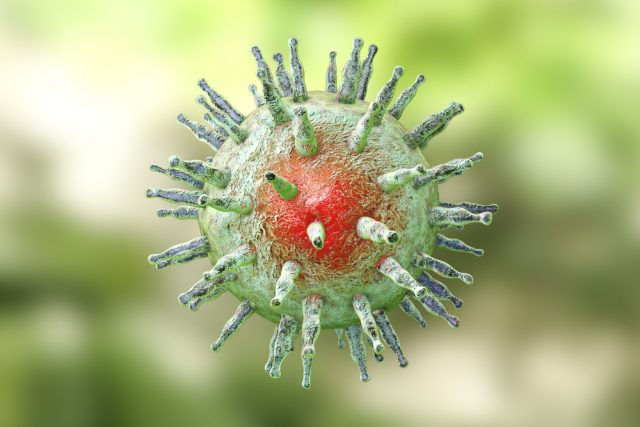Epstein Barr Virus
As per the research carried by the Centers for Disease Control and Prevention (CDC); there are chances of most people getting infected with Epstein Barr Virus at least once in their lifetime; however, many of them do not observe any symptom. Experts say that if we keep on ignoring disease for a long time, it may further cause some serious complications. In such situations, it becomes quite essential to develop knowledge and awareness about disease symptoms in advance. If you are able to identify the symptoms on time, it is possible to avail right treatment without suffering troubles for the long run.
Epstein Barr Virus infection is common among woman, sexually active people and in people who belong to tropical countries. If we consider the stats, count of white people affected by Epstein Barr Virus infection is more in the United States as compared to the African Americans. This virus can generally affect all demographic groups.
What is Epstein Barr Virus (EBV)?
Epstein Barr Virus is considered as a member of herpes virus family, specifically linked to herpesvirus 4. It is well known as the common cause of the infection that is named as infectious mononucleosis or mono. Studies reveal that Epstein Barr Virus can also many other illnesses such as fatigue that may last for several weeks or months even when infection is treated. The sad truth is that people that get infected with Epstein Barr Virus will carry this virus in their body for a lifetime. Although it does not cause any noticeable health issue, if some medications and repetitive illnesses cause decay in your immune health, the virus may show some complications.
In short, there are three major terms that you need to understand while talking about EBV. The first one is herpes that is well known as a family of viruses with symptoms like shingles, chicken pox, cold sores and sores on the genitals. The Epstein Barr Virus is a specific type of herpes virus and mono or infectious mononucleosis is the major illness developed due to the presence of EBV in the body.
Types and stages of Epstein Barr Virus
Medical health experts reveal that Epstein Barr Virus does not show any recognizable symptom for first 4 weeks after infection. Then, the patient starts noticing few symptoms between 4th to 6th months in form of swollen lymph nodes, rashes, fever, headaches and body pains. A person starts feeling tired most of the time, but these symptoms get recovered within 2-4 weeks; however, the tiredness or fatigue may last for several months ahead. Note that, if your body sustains symptoms of Epstein Barr Virus for months, chances are that you are suffering from chronic EBV infection.
Epstein Barr Virus can affect people at any age group, but it is not necessary to observe any symptoms of the disease even when you are infected. Several reports present no symptoms of the virus in children or they may have mild discomfort. But it doesn’t mean that they will not suffer any issue due to this virus at a later stage in life as well; rather the virus may keep on showing its symptoms at different phases of life, especially if the person has a weak immune system. One uncommon form of mono is named as Chronic Active EBV that causes symptoms of active virus and mono to last in the body for the duration of illness. This state is also referred as chronic fatigue and it may have an impact on the body for weeks or for few months.
Symptoms of Epstein Barr Virus
Once the person gets infected by Epstein Barr Virus, it may take around 4 to 6 weeks for symptoms to appear. Children do not show any specific symptom of this virus, but the young ones may feel pneumonia, rashes and low white blood count. The young adults and teenagers develop symptoms of mononucleosis. Reports reveal that acute mono leads to some symptoms like swollen lymph nodes, fatigue, fever and sore throat that causes major discomfort and person may need immediate medical assistance. It may also lead to swollen tonsils, fatigue, loss of appetite, chills, bloating, headaches, body aches, sore muscles, sweats, and weakness. Some patients also report dizziness.
Some people also develop rashes due to this infection and it is common in patients who use amoxicillin and ampicillin to treat mononucleosis. However, this common reaction does not represent an allergy to these antibiotics and penicillin. The appearance of rashes along with symptoms discussed above can cause the condition of misdiagnosis. People suffering from mono also report swollen spleen that can even rupture with heavy bleeding causing the death of the person. Blunt or mild trauma to the abdomen can cause rupture of the swollen spleen. People that are suffering from mono are advised not to indulge in any kind of sports activity.
Very few patients report neurological complications due to Epstein Barr Virus. It may include inflammation of meningitis, encephalitis and individual nerves. In very few cases, it may also lead to infections in the spinal cord. Many patients having neurological complications may recover completely; however, in few rare cases, the disease may start affecting few other organs like heart and lungs.
At the time of pregnancy, Epstein Barr Virus rarely harms fetus even if the mother is already infected. Even if the mothers become infected during pregnancy cycle, no harmful impacts are reported on the newborn baby. Epstein Barr Virus can be associated with many autoimmune diseases such as multiple sclerosis, oral lichen planus, systemic lupus erythematosus, autoimmune thyroiditis, autoimmune hepatitis, rheumatoid arthritis, Kawasaki disease, and Sjogren syndrome.
The symptoms of Epstein Barr Virus enter the body and starts triggering some response to the immune system. This virus can spread to another person via bodily fluids including saliva. Hence, it is better not to kiss the infected person. Doctors recommend not sharing food, toothbrushes, and drinks with the EVB patient. Sexual contact and blood transfusions can also spread EVB.
Diagnosis and Tests of Epstein Barr Virus
It is observed that Epstein Barr Virus have symptoms same as many other disease viruses so most of the time patients and even doctors misinterpret the presence of infection in the body. There are chances that you may not avail right diagnosis at first stage. It is important to take a blood test to know the presence of antibodies in the body. When the person becomes infected with Epstein Barr Virus, the immune system starts developing some antibodies and they can stay inside throughout your life. But within past few years, the cases of Epstein Barr Virus infections have increased by large count. so doctors are now able to identify it without conducting such blood tests. A report of CDC reveals that almost 9 out of 10 adults have antibodies for Epstein Barr Virus in their body; hence we cannot say that a positive test means the person is infected with EBV and the current symptoms are related to that virus.
During diagnosis, some doctors also prefer to check the presence of mono because this disease is developed due to the presence of Epstein Barr Virus in the body. It may include liver function test as well as test for checking white blood cell count. Patients that are suffering from mono generally have abnormal liver functionality with unusual appearance of white blood cells in the body.
Treatment and Medications for Epstein Barr Virus
The sad truth is that no cure has been developed for Epstein Barr Virus till now. Generally, most patients recover from potential symptoms of Epstein Barr Virus within few days; but few may suffer for weeks and months as well. Doctors recommend few simple treatments to ease the symptoms of this infection:
- It is better to do as much rest as possible.
- Prefer to stay hydrated by following proper routines for liquid intake.
- Use some trusted over the counter medications to deal with the body aches and fever.
Those who are suffering from swollen throat problem need to contact a trustworthy medical health professional to avail some pain relief. They may prescribe corticosteroids to reduce the pain and swelling so that you can follow trouble free routines for drinking and eating food. Some patients also need corticosteroids to recover swelling in the spleen region. In short, you will not be able to find any trustworthy care for Epstein Barr Virus infection; the only solution is to follow supportive care. Note that antibiotics are not effective for this disease virus.
Prevention with nutrition-based approaches:
There are chances to reduce complications associated with Epstein Barr Virus by following good hygiene practices for routine life. It is not good to share food, drinks, personal items such as toothbrush, towel, pillow etc. Once a person gets infected with Epstein Barr Virus, there are chances to face repeated troubles due to this infection for a lifetime. But one can reduce the risks by simply following a healthy diet that can improve immune health.
Although, there is no specific diet that can help you stay protected from Epstein Barr Virus. But the healthy diet that has a major impact on the improved functioning of the immune system may help you to avoid complications associated with this virus. However, some people are not able to drink or eat due to swollen throat symptom caused by Epstein Barr Virus. Professionals recommend adding more soft foods to the routine diet that can enhance count of nutrients and calories in the body. You can switch to yogurt, creamed potatoes, soups, smoothies made up of vegetables and fruits.
Home Remedies to treat Epstein Barr Virus:
- Vitamin C:
You might be aware of the fact that vitamin C is often used as a potential remedy for common flu and cold, but the great news is that this home-based remedy can also assist you to deal with the symptoms of Epstein Barr Virus. Studies reveal that vitamin C is capable enough to lower down the presence of virus in the body while dealing with its symptoms as well. Best sources of vitamin C are kiwi, orange, grapefruit, kale, broccoli, papaya, strawberries, lemon/lime, guava and yellow bell peppers.
- Zinc:
Zinc is known as a popular anti-viral compound that ensures fast healing from common cold and flu. Experts say that optimal levels of zinc in the body can also initiate a fight against replication of viruses. It regulates the functioning of the immune system inside human body so that people can stay safe from viral infections.
- L-Lysine:
It is a specific type of amino acid that plays an essential role in the formation of antibodies, development of hormones and in building muscles. This amino acid also works effectively against outbreaks caused by herpes and Epstein Barr Virus is also one of them. Arginine is another commonly used amino acid to treat viral pathogens in the body.
- Olive leaf extract:
Olive leaf holds a powerful name in the history of herbal medications. It is known for its antiviral, anti-fungal and anti-bacterial effects. Olive leaf extract is considered to be powerful against bad bacteria and fungi and it makes your immune system able to deal with EBV infection.
- Echinacea:
Here is another powerful herbal remedy for improving the functionality of the immune system. It is popularly used for treatment for cold and flu; however, reports reveal that it is also effective enough to present strong immunomodulation and anti-viral effects. Epstein Barr Virus can enhance Epstein Barr Virus healing with its potent antiviral activity that also supports macrophage activity.
- Beta-Glucan:
Beta glucan is well known as an immune regulatory agent that is suitable enough for stimulating a strong immune response. If the patient is suffering from Epstein Barr Virus, Beta-Glucan can help to fight against most symptoms of this infection.

